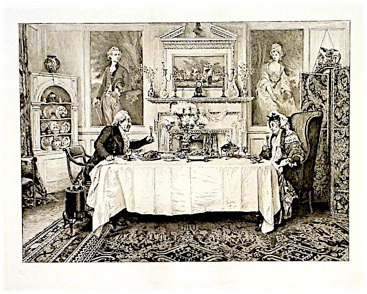Shattered Dreams
[The British Medical Journal says that men of
genius are never happy in their married lives.]
I THOUGHT, dear DORIS, we should be
Extremely happy if we married;
I deemed that you were made for me,
But oh! I'm thankful now we tarried.
Had we been wedded last July
(I caught the measles so we waited)
We'd now be wretched, you and I;
A genius always is ill-fated.
We might have lived without a hitch
Till one or both of us were “taken”,
And even won the Dunmow flitch
Of appetising breakfast bacon;
We might have passed our married life
In quite the Joan and Darby fashion,
Free from the slightest taint of strife, –
Had I not written “Songs of Passion”.
Ah me, that book! The truth will out;
Genius is rampant in each sonnet;
Consult, if you're inclined to doubt,
The verdict of the Press upon it.
The Pigbury Patriot calls them “staves
Which we feel justified in praising”;
The Mudford Daily Argus raves;
The Sloshly Clarion says “Amazing!”
So, DORIS, it can never be:
I trust the tidings won't upset you;
Reluctantly I set you free,
Though ne'er, I vow, will I forget you.
Some other man your hand may win;
I'll strive to bear it with composure;
Your letters you will find within;
Yours truly,
EDWIN JONES. (Enclosure)
First published in Punch, July 29, 1903
Notes:
-
-Dunmow Flitch: The town of Great Dunmow, Essex, is famous for its four-yearly ritual of the Flitch Trials, in which couples must convince a jury of six local bachelors and six local maidens that they have never wished themselves un-wed for a year and a day. If successful the couple are paraded through the High Street and receive a flitch of bacon.
More.
-
-Darby and Joan: The term 'Darby and Joan' is defined as "a happily married couple who lead a placid, uneventful life". The term is also used disparagingly to describe younger people who are perceived to favour spending their evenings in, or following pursuits seen as "middle-aged". In England, clubs for senior citizens are appropriately called Darby and Joan Clubs. It seems most likely that John Darby and his wife Joan were first mentioned in a poem published in The Gentleman's Magazine by Henry Woodfall in 1735.
More.



